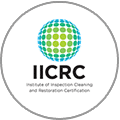When a sewage backup happens, homeowners face a big question: is it safe to stay in the house? Many don’t know the health risks from such an event. It might seem okay to stay and clean up later, but it’s actually very dangerous.
The water from sewage backups is full of harmful stuff like bacteria, viruses, and parasites. Emergencies can happen fast, knowing how to stay safe is key. It’s important to understand why getting help from experts is often a must in these situations.
Key Takeaways
- Sewage backup introduces significant health risks to homeowners.
- Black water contamination contains harmful bacteria, viruses, and chemicals.
- Even minimal incidents pose severe contamination and health threats.
- Exposure can lead to various health issues, including gastrointestinal and respiratory problems.
What is Sewage Backup?
Sewage backup happens when wastewater can’t flow normally. This causes it to back up into homes. This system is key to keeping areas sanitary.
There are many reasons for these blockages, including:
- Clogged sewer lines: Things like debris, grease, or tree roots can block sewer lines, stopping waste from flowing.
- Heavy rainfall: Too much rain can fill the sewage system, causing backups.
- Municipal failures: Issues with the city’s system can also lead to backups.
Sewage backups are serious and need quick action. They can cause a lot of water damage and are harmful to health.
The Health Risks of Sewage Backup
Exposure to sewage is a big health risk. It has many harmful contaminants. Blackwater contamination is especially dangerous because it has bacteria like E. coli and Salmonella. It also has viruses and toxic substances like pesticides and protozoans.
The American Society of Civil Engineers says many U.S. wastewater systems are not up to standard. This means they can easily have sewage backups. These backups can cause serious health problems.
- Gastroenteritis: This illness from sewage can cause diarrhea, vomiting, and stomach pain.
- Infectious Diseases: Blackwater contamination can lead to diseases like Leptospirosis, Hepatitis, and Acanthamoeba infections.
- Respiratory Problems: Breathing in toxic gases from sewage can be deadly.
- Long-term Health Issues: Being exposed to sewage for a long time can cause serious health problems, including lung and infectious diseases.
It’s important to know the dangers of sewage backup. This knowledge helps us take steps to stay safe and protect our families.
Is it Safe to Stay in House after Sewage Backup?
After a sewage backup, the first thing to worry about is the safety of everyone inside. Sewage can carry harmful germs and gases, making it dangerous to stay. It’s best not to stay in a house with sewage contamination without cleaning it properly.
How bad the sewage spill is will tell you if you need to leave. If the mess is big, you might need to get out fast for your safety. Acting quickly is key; waiting can make things worse and risk your health.
- First, check how bad the damage is – If it’s severe, leave the house right away.
- Second, call in professional cleaners – Quick help from experts can lower health risks and make your home safe again.
Getting your home safe after a sewage backup means cleaning it well. Experts in cleanup can take care of the dangerous waste and clean everything. Don’t go back until experts say it’s safe.
To make your home safe again, you need to evacuate quickly, get professional help, and clean everything well. This way, your home can be safe for you to live in again.
Immediate Steps to Take After Sewage Backup
When you face a sewage backup, act fast to protect your health and reduce damage. Here are the steps to take right away:
- Evacuate the Area: Safety comes first. Move everyone away from the affected area to avoid touching contaminated water. This water can be harmful to your health.
- Avoid Contact with Contaminated Water: Touching sewage can cause infections. Make sure no one touches the contaminated water or surfaces. Use protective gear if needed.
- Shut Down Utilities: Turn off electricity, gas, and water to prevent more dangers like electrical shocks or gas leaks. This is key for a safe response.
- Document the Damage: Take pictures and note all the affected areas and items. This info is important for insurance claims and helps with recovery.
- Follow Expert Guidance: Listen to sewage cleanup pros and health officials. Their advice is crucial for safely fixing and cleaning up.
Acting quickly helps reduce health risks and damage to your property. Trust experts and follow their advice for a good response and recovery.
Conclusion
Sewage backup is a serious issue that poses health and safety risks to homeowners. It’s important to act fast to avoid exposure to harmful bacteria and viruses. Taking steps to keep your home safe is key to protecting your health.
Getting help from professional restoration services is vital. These experts can clean up and handle the affected areas safely. This helps prevent more health problems and keeps your home in good shape.
Preventing sewage backups and having a plan in place is essential for a safe home. Homeowners should always be prepared to act quickly and effectively. This ensures the safety and well-being of their families.






